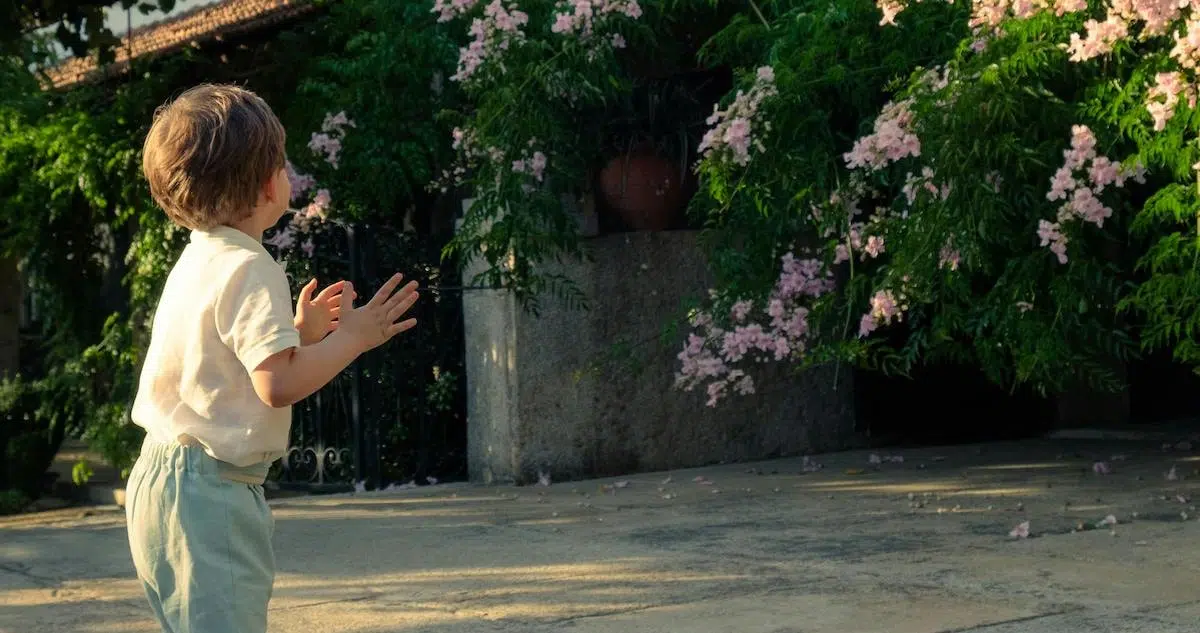How to teach children to be aware of their thoughts
Jaimie Bloch
Jaimie Bloch
Up next
We tend to speak a lot about how to help children own their emotions and teaching our preschoolers about how to use their words, but what about what goes on inside their (very cute) little heads? How do we teach children about their thoughts, what they mean and how to sort through the positive and the negative?
This is especially important as we strive to raise confident children with strong senses of self-worth and belonging. Those early years of development are the perfect time to start helping our little ones recognise that any negative thoughts they may have are not true reflections of who they are. Additionally, we know that negative thoughts about activities (such as reading, writing or maths) can become negative thoughts about themselves and their abilities, if the patterns aren’t changed in time.
We spoke to Clinical Psychologist Jaimie Bloch from MindMovers Psychology about how we can teach children about their thoughts and how we can help them avoid getting stuck in negative thinking.
“The notion that thoughts are just words, rather than thoughts are facts or the truth, is an ongoing learning process for all humans,” explains Jaimie. “We must teach children this from a young age. This is because thoughts are the main drivers of our mind-set. Our thoughts are also the foreground of how we see the world, how we interpret ourselves within the world and whether we can be resilient and successful in life or if we become bogged down by the challenges we face. Understanding this concept from a young age is a great tool to have in your child’s tool kit for life.”
Here, Jaimie shares a fun and engaging way to help kids understand their thoughts and how those thoughts can influence how they see themselves.
How to teach children about their thoughts
“A simple way to teach toddlers and children about thoughts is with bubbles,” says Jaimie.
She goes on to explain that in the MindMovers clinic, they use bubbles as a metaphor for understanding the nature of thoughts. “Thoughts like bubbles are fluid, moving, sometimes stick together and are always changeable and ‘pop-able’”, she says.
According to Jaimie, this is a helpful and fun way to engage young children about their thoughts.
“When we become “stuck” to the thought like Velcro and believe that it is true, this can cause us distress,”she says. “When we become stuck in these thoughts over and over, we then create patterns in our brain, and these thoughts become fact about our lives and identities.”
Sign up
Get tailored content based on your week of pregnancy
By signing up, you agree to receiving our Newsletters. Cancel anytime.



How thoughts influence how children see themselves
For example, if a child experiences a negative feeling when trying to put numbers together, the thought “I am not good” or “I don’t like numbers” begins to form. This thought, when experienced over and over, then becomes “I am bad at maths” or “I am not academic” rather than “I am learning about numbers and it feels hard right now, but I will understand it eventually”.
Equally, if there are early struggles with the alphabet or reading, subconscious thoughts like “reading is hard” or “I don’t like reading” can begin to form and create long-term challenges for parents and kids once children hit school.
“The good news is that brains are changeable and that if we choose a different thought again and again, this can become a new, more helpful pattern,” says Jaimie. “Try introducing the bubble concept with your toddler and help support developing more balanced and positive internal thoughts around self, learning and challenges.”
Jaimie Bloch is a Clinical Psychologist, Behavioural Expert, Researcher and Program Developer.
She is passionate about working with youth and adults in understanding, developing and managing the human experience. Jaimie has been working with youth and adults within a range of contexts since 2007. She is an expert behavioural consultant for children and adolescents and has a special interest in the treatment, creation and management of interventions both in individual, group, school and online forums for children, adolescents, adults and families.
Jaimie has spent years studying and perfecting her craft with a Bachelor of Psychological Science, a Bachelor of Psychological Science (Honours), a Graduate Diploma of Professional Psychology and a Master’s of Psychology (Clinical).
Related Articles
Trending
Jaimie Bloch
Follow +Jaimie Bloch is a leading child and family Clinical Psychologist and the Director of MindMovers Psychology. Jaimie uses her flair for creativity to encompass both holistic and evidence-based approaches that are simple to understand, practical and easily implemented. Jaimie is an expert in developing programs and psychological materials for schools, corporations,...









